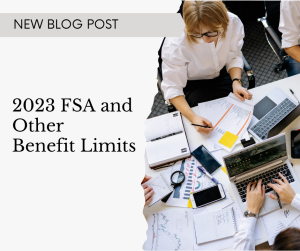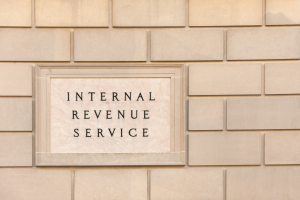IRS
The Internal Revenue Service (IRS) published Revenue Procedure 2022-38 on October 18, 2022. The Revenue Procedure includes the inflation-adjusted 2023 contribution limits for certain employee benefit programs. Below is a summary of some of those contribution limit adjustments.
Health Flexible Spending Accounts (Health FSAs)
The Department of Labor (DOL), Department of Health and Human Services (HHS), and the Internal Revenue Service (IRS) jointly issued guidance on a new requirement that individual and group health plans must cover over-the-counter (OTC) COVID-19 diagnostic tests.
The Internal Revenue Service (IRS) has recently issued Notice 2021-26 which provides tax guidance for various provisions that have recently changed for Dependent Care Flexible Spending Accounts (DC FSAs), which are sometimes also referred to as Dependent Care Assistance Programs (DCAPs).
The Internal Revenue Service (IRS) recently published Announcement 2021-7 which indicates Personal Protective Equipment (PPE), such as masks, hand sanitizer, and sanitizing wipes, may be reimbursed under a Flexible Spending Account (FSA), Health Reimbursement Arrangement (HRA), or a Health Savings Account (HSA). These expenses are eligible for reimbursement if the primary reason for the purchase is to prevent the spread of COVID-19.
The Internal Revenue Service (IRS) recently released Notice 2021-15 which supplements legislation that was included in the Consolidated Appropriations Act, 2021 pertaining to new, temporary options employers can implement to their Health and Dependent Care Flexible Spending Accounts (Health FSAs and Dependent Care FSAs).
The Affordable Care Act (ACA) created two reporting requirements which are spelled out in Internal Revenue Code Sections 6055 and 6056.
Section 6055 requires every provider of minimum essential coverage to report information of those employees and dependents who enroll in coverage. Reporting this information to the Internal Revenue Service (IRS) is still required even though the Individual Shared Responsibility penalty (i.e. Individual Mandate) is $0.
President Donald Trump declared a national emergency due to the COVID-19 pandemic earlier this year. The national emergency took effect on March 1, 2020, and it has yet to expire. Following the national emergency declaration came a wave of guidance and regulations, including guidance and regulations which impacted deadlines associated with employee benefit programs.
The Internal Revenue Service (IRS) recently issued Notice 2020-76 with information pertaining to the upcoming reporting required by the Affordable Care Act (ACA).
The following information was included in the notice:
The Internal Revenue Service (IRS) recently proposed rules that would expand the definition of medical expenses allowed under Section 213(d) of the Internal Revenue Code (“Code”). This part of the Code is what helps guide the types expenses that can be reimbursed through a Health Reimbursement Arrangement (HRA), Flexible Spending Account (FSA) or Health Savings Account (HSA).










